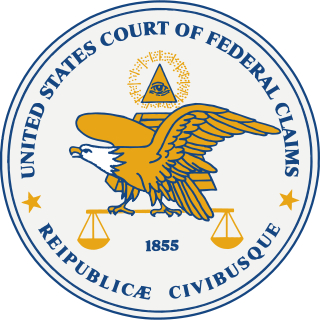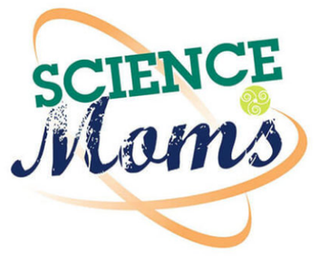 W
WThe Anthrax Vaccine Immunization Program (AVIP), is the name of the policy set forth by the U.S. federal government to immunize its military and certain civilian personnel with the BioThrax anthrax vaccine. It began in earnest in 1997 by the Clinton administration. Thereafter it ran into Food and Drug Administration (FDA) and judicial obstacles. Over 8 million doses of BioThrax were administered to over 2 million U.S. military personnel as part of the program between March 1998 and June 2008.
 W
WThe Biologics Control Act of 1902, also known as the Virus-Toxin Law, was the first law that implemented federal regulations of biological products such as vaccines in the United States. It was enacted in response to two incidents involving the deaths of 22 children who had contracted tetanus from contaminated vaccines. This law paved the way for further regulation of drug products under the Pure Food and Drug Act of 1906 and the Federal Food, Drug, and Cosmetic Act of 1938. Biologics control is now under the supervision of the U.S. Food and Drug Administration (FDA).
 W
WBetty Lou Bumpers was an American politician, advocate for childhood immunizations, and world peace activist, who served as the First Lady of Arkansas from 1971 to 1975. Together, she and Rosalynn Carter ran a successful campaign to ensure that all American school children were immunized. Bumpers was also the wife of the late Dale Bumpers, the governor of Arkansas from 1971 to 1975 and then U.S. Senator from 1975 to 1999.
 W
WMichelle Cedillo v. Secretary of Health and Human Services, also known as Cedillo, was a court case involving the family of Michelle Cedillo, an autistic girl whose parents sued the United States government because they believed that her autism was caused by her receipt of both the measles-mumps-and-rubella vaccine and thimerosal-containing vaccines. The case was a part of the Omnibus Autism Proceeding, where petitioners were required to present three test cases for each proposed mechanism by which vaccines had, according to them, caused their children's autism; Cedillo was the first such case for the MMR-and-thimerosal hypothesis.
 W
WThe schedule for childhood immunizations in the United States is published by the Centers for Disease Control and Prevention (CDC). The vaccination schedule is broken down by age: birth to six years of age, seven to eighteen, and adults nineteen and older. Childhood immunizations are key in preventing diseases with epidemic potential.
 W
WThe Immunization Action Coalition (IAC) is an organization that distributes information about vaccines and the diseases they prevent. In partnership with the Centers for Disease Control and Prevention (CDC), their headquarters is located in Saint Paul, Minnesota, with member coalitions in the United States and Canada. Paul Offit serves on the Advisory board.
 W
W"Jim" was the name of a former milk wagon horse, who was used to produce serum containing diphtheria antitoxin. Jim produced over 30 US quarts of diphtheria antitoxin in his career. However, on October 2, 1901, Jim showed signs that he had contracted tetanus and was euthanized. After the death of a girl in St. Louis was traced back to Jim's contaminated serum, it was discovered that serum dated September 30 contained tetanus in its incubation phase. This contamination could have easily been discovered if the serum had been tested prior to its use. Furthermore, samples from September 30 had also been used to fill bottles labeled "August 24," while actual samples from the 24th were shown to be free of contamination.
 W
WThe Office of Special Masters of the U.S. Court of Federal Claims, popularly known as "vaccine court", administers a no-fault system for litigating vaccine injury claims. These claims against vaccine manufacturers cannot normally be filed in state or federal civil courts, but instead must be heard in the U.S. Court of Federal Claims, sitting without a jury.
 W
WVaccination policy in the United States is the subset of U.S. health policy that deals with immunization against infectious disease. It is decided at various levels of the government, including the individual states. This policy has been developed over the approximately two centuries since the invention of vaccination with the purpose of eradicating disease from the U.S. population, or creating a herd immunity. Policies intended to encourage vaccination impact numerous areas of law, including regulation of vaccine safety, funding of vaccination programs, vaccine mandates, adverse event reporting requirements, and compensation for injuries asserted to be associated with vaccination.
 W
WThe Project Bioshield Act was an act passed by the United States Congress in 2004 calling for $5 billion for purchasing vaccines that would be used in the event of a bioterrorist attack. This was a ten-year program to acquire medical countermeasures to biological, chemical, radiological, and nuclear agents for civilian use. A key element of the Act was to allow stockpiling and distribution of vaccines which had not been tested for safety or efficacy in humans, due to ethical concerns. Efficacy of such agents cannot be directly tested in humans without also exposing humans to the chemical, biological, or radioactive threat being treated, so testing follows the FDA Animal Rule for pivotal animal efficacy.
 W
WScience Moms is a 2017 American documentary film about mothers who advocate for science-based decision-making concerning the health and nutrition of children. The film covers vaccines, autism, celebrity-endorsed health fads, cancer, allergies, organic food, GMOs, homeopathy, and the appeal to nature fallacy.
 W
WThe Smallpox Vaccination Campaign of 2003 was a vaccination program announced by the White House on 13 December 2002 as preparedness for bioterrorism using smallpox virus. The campaign aimed to provide the smallpox vaccine to those who would respond to an attack, establishing Smallpox Response Teams and using DryVax to mandatorily vaccinate half a million American military personnel, followed by half a million health care worker volunteers by January 2004. The first vaccine was administered to President Bush.
 W
WThe Vaccines for Children Program (VFC) is a federally funded program in the United States providing no-cost vaccines to children who lack health insurance or who otherwise cannot afford the cost of the vaccination. The VFC program was created by the Omnibus Budget Reconciliation Act of 1993 and is required to be a new entitlement of each state's Medicaid plan under section 1928 of the Social Security Act. The program was officially implemented in October 1994 and serves eligible children in all U.S. states, as well as the Commonwealth of Puerto Rico, the U.S. Virgin Islands, American Samoa, Guam, and the Commonwealth of the Northern Mariana Islands.